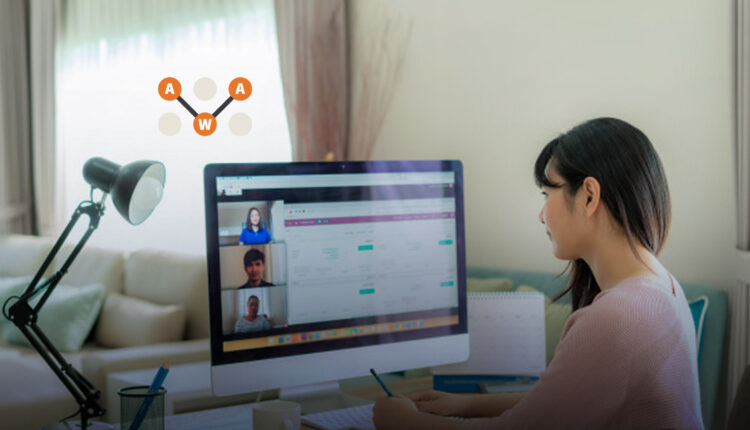Analysis on Behalf of Advanced Workplace Institute Shows Risks of Covid-19 Home Working Revolution
Trust, social cohesion and information sharing face damage when people work virtually
Trust, social cohesion and information sharing are the most potentially vulnerable to damage when people work virtually, according to a study of around 750 academic papers conducted on behalf of the Advance Workplace Institute (AWI), a global workplace management body. As organizations rapidly embrace home working in response to the Covid-19 pandemic, the study warns that without active management to respond to changes in working, team dynamics are under risk with a knock on effect on both employee happiness and performance.
“Covid-19 has accelerated the notion that the workplace is wherever you want to work and not necessarily a physical office,” says Andrew Mawson of Advanced Workplace Associates, the consultancy which founded the AWI. “Virtual working is here to stay, and this brings serious challenges for managing the modern workforce.”
The AWI partnered with the Centre for Evidence Based Management, a global network of top-flight academics, to analyze all the relevant academic research. It studied 35 primary studies and 10 meta-analyses (which themselves drew on 715 original studies) to produce a report, Managing The Virtual Workforce, which is released to AWI members today.
HR Technology News: Kofax Donates Power PDF Sale Proceeds to International Red Cross in Support of Front-Line Healthcare Workers
The report has six main conclusions:
- Working apart impacts team dynamics, the frequency and quality of communications, levels of consensus and conflict, and the amount and quality of social interaction. All of these impact the performance of teams and the outcomes they generate.
- Successful virtual working requires an understanding of the differences that people experience, compared to being co-located. To avoid damage to team and community performance, people need to respond to the differences and find alternative ways to operate.
- Effective virtual teams are determined by the strength of their social and cognitive states – i.e. the degree to which they are socially cohesive, trust each other, operate within a psychologically safe climate and share skills, experience and knowledge freely.
- While all factors interconnect, trust and communication lie at the foundation of cohesion, supervision, communication, the sharing of skills and knowledge, work relationships and the performance of virtual teams.
- Trust, social cohesion and information sharing seem to be the most potentially vulnerable to damage when people work virtually and must be consciously understood and actively managed – they can’t be left to chance.
- In virtual teams there is potential for everyone to be a leader – home based employees respond well to more transformational management styles. This involves creating a strong team structure, empowering and guiding the team, involving them in the development of group goals and supporting them in actively reflecting on decision making and outcomes.
HR Technology News: Wolters Kluwer Tax & Accounting Expert To Speak At The 2020 Calcpa Employee Benefit Plans Audit Conference About Enhancing Employee Benefit Audits With Risk-Based Audit Methodology

